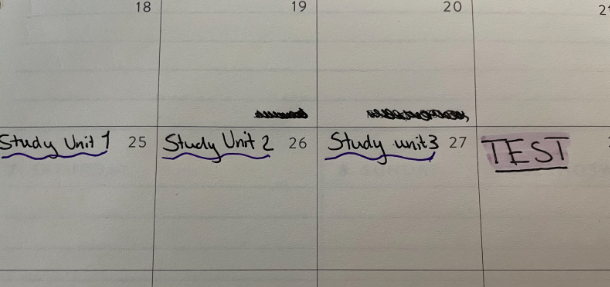Studying can sometimes be a student’s worst nightmare. The combined stress of upcoming exams and the need to retain all of the material from all of one’s classes is overwhelming and can make studying sessions ineffective at times. No matter how hard someone tries, no material is remembered in a way that counts. So how does a student overcome this block in memory?
One way that students believe helps them study is listening to music. It calms the mind because of its familiarity. Music is one of the more common methods of studying, especially for people who are easily distracted, as the music helps distract the part of the mind that wanders off while you’re trying to concentrate.
Some students simply do not know how to study in a way that works for them, and they end up cramming for a test the night before, which rarely works. Cramming everything in one session does not equal retention of material. You are better off studying in a calmer environment, spacing out the material between multiple days. Spacing out the material will help you focus on each detail one at a time and gives you space to focus on your other work without the stress.
While cramming does not work, designating a day to slowly and effectively go through your material could be a good option if you have a shorter schedule or a weekend between tests. With this method, you are going to map out each topic in the unit you are being tested on, and focus on that material for at least thirty minutes before moving onto the next one. Set your own times and pacing, but try to keep the studying increments the same amount of time for a level of consistency.
There are many ways to make studying easier, such as flashcard terms that you may need on the test, making a Quizlet or Kahoot to review a unit, and many more. What is important is that you avoid cramming everything into one day, and set a pace that is comfortable and achievable for you so you can retain as much information as possible.






































